Tariff Tsunami: What Trump’s New Trade War Means for Southeast Asia’s Startups
Trump Tariffs SEA global trade 6 Minutes
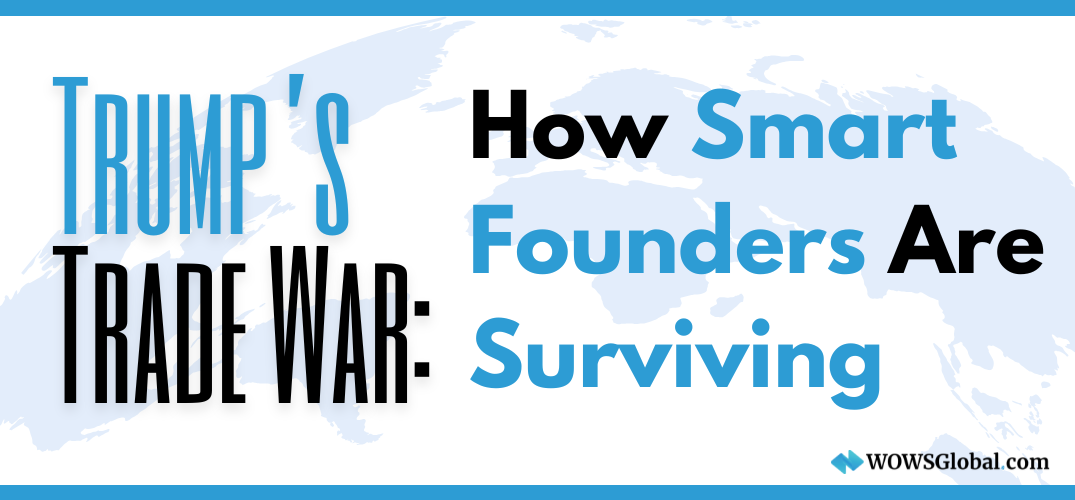
A 10% Blanket Tariff. 145% on China. What Just Happened?
Earlier this month, President Donald Trump, freshly re-elected and back with a vengeance, unveiled a sweeping new tariff plan: a 10% universal import duty and a whopping 145% tariff on Chinese goods.
This isn’t just a blip on the trade radar; it’s a full-blown reshuffling of global commerce. China immediately responded with retaliatory measures. The World Trade Organization now warns that global trade growth could grind to nearly zero (0.2%) in 2025, compared to the previously expected 2.7%.
This is not just about containers and customs forms. It’s about how small companies in Southeast Asia, from fintech startups in Ho Chi Minh to logistics scale-ups in Manila, chart their course through stormy economic waters.
Supply Chains Just Got a Curveball
Startups don’t operate in a vacuum. Whether you're building an e-commerce logistics platform in Thailand or manufacturing IoT devices in Vietnam, chances are you’re hooked into the China-centric supply web that’s now unraveling under tariff pressure.
Real-world fallout:
-
Vietnamese electronics startups sourcing components from Shenzhen are facing sudden price jumps.
-
Thai export-based agri-tech firms that previously saw the U.S. as a growth market are now seeing deals fall through or stall.
Just like the butterfly effect, a tariff in Washington flaps its wings, and a startup in Jakarta loses its investor interest.
Strategic Pivots: Winners & Losers
Not all startups are losing out. In fact, some are repositioning themselves as alternatives to Chinese supply. Indonesia and Vietnam, already rising as “+1” countries in the China +1 strategy, are gaining new attention from multinationals looking to diversify sourcing.
But here’s the kicker:
Startups that lean too heavily on exports or high-volume manufacturing are now on thin ice. Those that are digitally native, asset-light, or local-market focused? They're skating through — for now.
This dichotomy is pushing Southeast Asian VCs to rethink their theses:
-
Will your portfolio survive if cross-border trade grinds down?
-
Can the team localize and serve Southeast Asia rather than rely on expansion to the U.S.?
The Investment Mood: Not Fearful, But Watchful
Unlike the shock from COVID-19 or the crypto winter, this isn't about freezing capital. It's about recalibrating expectations.
What we’re hearing from investors:
“We’re not pulling back — but we are re-prioritizing resilience.”
VCs are looking more closely at:
-
Supply chain dependencies
-
FX exposure and pricing power
-
Regional growth vs U.S. dependency
Think of it like the Cold War-era “duck and cover” drills, founders aren’t running, but they’re building bunkers. Economic ones.
Building Resilience: A Founder’s Guide
If you’re building in SEA, here’s what matters right now:
-
Diversify your revenue base – Don’t bet your Series A on U.S. expansion.
-
Localize ops – From payments to procurement, what can you anchor within ASEAN?
-
Play the policy game – Governments are adjusting trade deals and offering incentives. Stay ahead of them.
Pro tip:
Treat global trade like the weather. You don’t control it, but you can choose what you wear and when to set sail.
History Rhymes: This Isn’t the First Time
If this sounds familiar, it should. The Smoot-Hawley Tariff Act of 1930, meant to protect U.S. jobs during the Great Depression, ended up worsening global economic collapse. We’re far from that, but the lesson still stands: when nations wall themselves off, innovation suffers.
But Southeast Asia isn’t the same backwater it was in the 1930s. Today, it's home to unicorns, digital banks, and a growing middle class. With the right moves, it could turn trade pain into strategic gain.
Final Word
Trump’s tariff tantrum isn’t the end of the world, but it’s a realignment. The startups that survive and thrive in SEA will be those that think regionally, plan globally, and execute locally. For investors, the winners won’t just be disruptive, they’ll be adaptable.
Contact us to explore how we can help your business adapt and thrive.
Related Posts
-
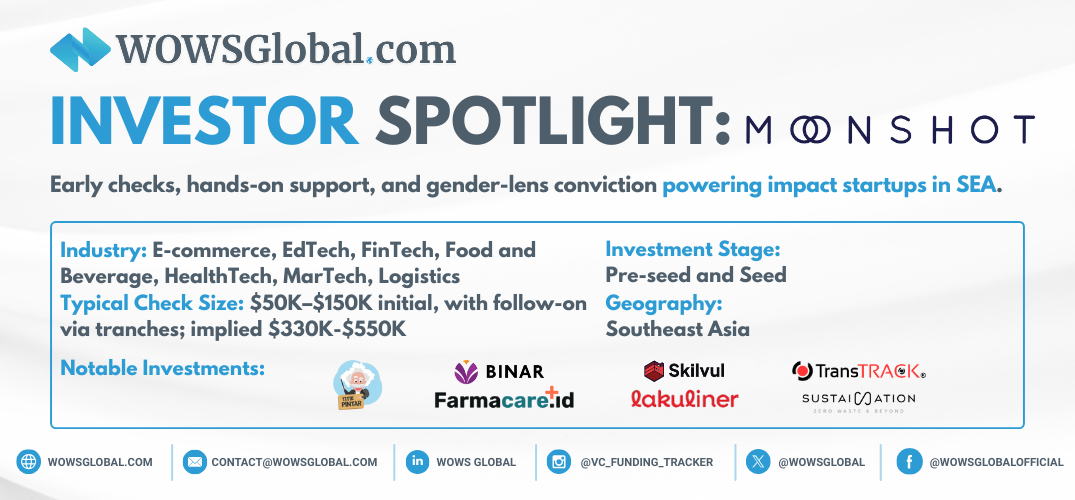
Fintech SEA AI Startups Early Stage 5 Minutes
Moonshot Ventures: Betting Early on Southeast Asia’s Purpose-Driven Builders Starting with Women-Led Innovation in Indonesia
Moonshot Ventures invests early in Southeast Asia’s most mission-driven founders, pairing capital with deep operating support. Through IWEF, it’s helping women-led innovation in Indonesia scale with a tranche-based model and a strong partner network. -
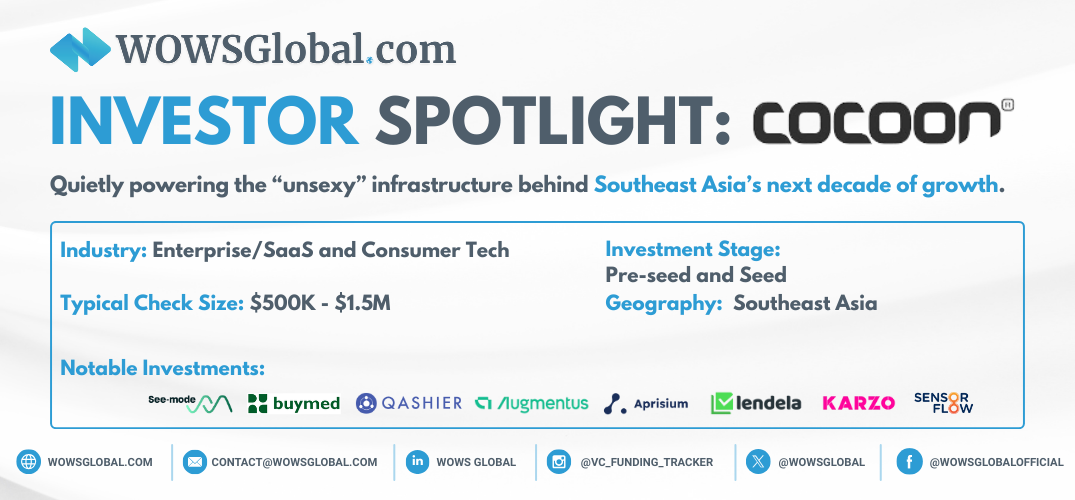
Capital SEA B2B ASEAN 7 Minutes
Cocoon Capital: Backing Southeast Asia’s Quiet B2B Revolution
From AI-powered stroke diagnostics to pharma distribution and SME payment rails, Cocoon Capital backs the “invisible” infrastructure powering Southeast Asia’s next wave of growth. This Investor Spotlight unpacks their B2B and deep-tech thesis, how they invest, and the founders they champion. -

Tourism Travel SEA Tech 5 Minutes
Yacht Me Thailand: Digital Yacht Charter Platform for a Fragmented Market
Yacht Me Thailand is digitising yacht and boat charters across Thailand’s top marine destinations. With operator-first tools, sustainability at its core and ambitions to become a regional boating OTA, the platform is emerging as a notable travel-tech and marine tourism play. -
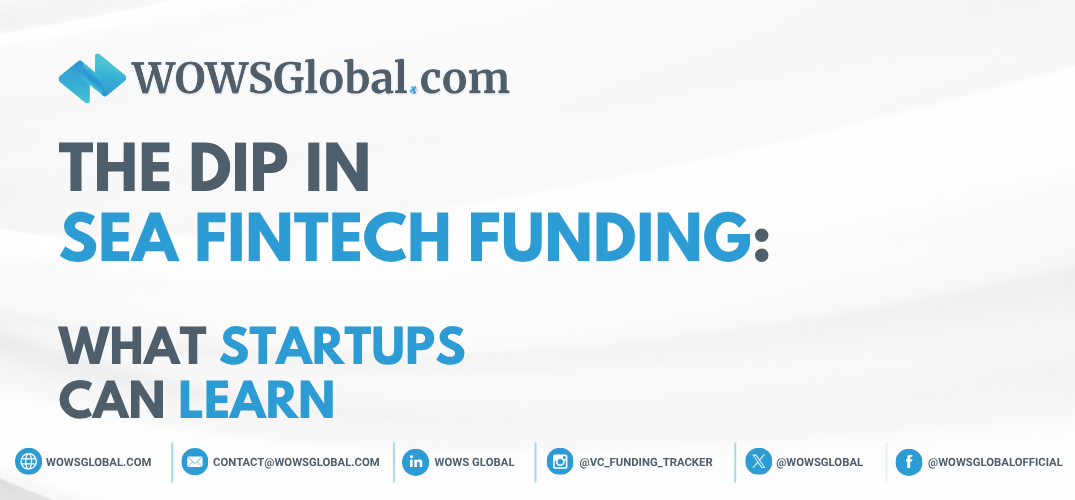
Fintech AI Startups Early Startups SEA 4 Minutes
The Dip in SEA Fintech Funding: What Startups Can Learn
SEA fintech funding has dipped, but capital is still on the field for disciplined teams. This article unpacks what the new funding rules look like and how founders can upgrade models, governance, monetization, and capital stacks. Learn where investor expectations have shifted and how WOWS Global can help you get raise ready. -
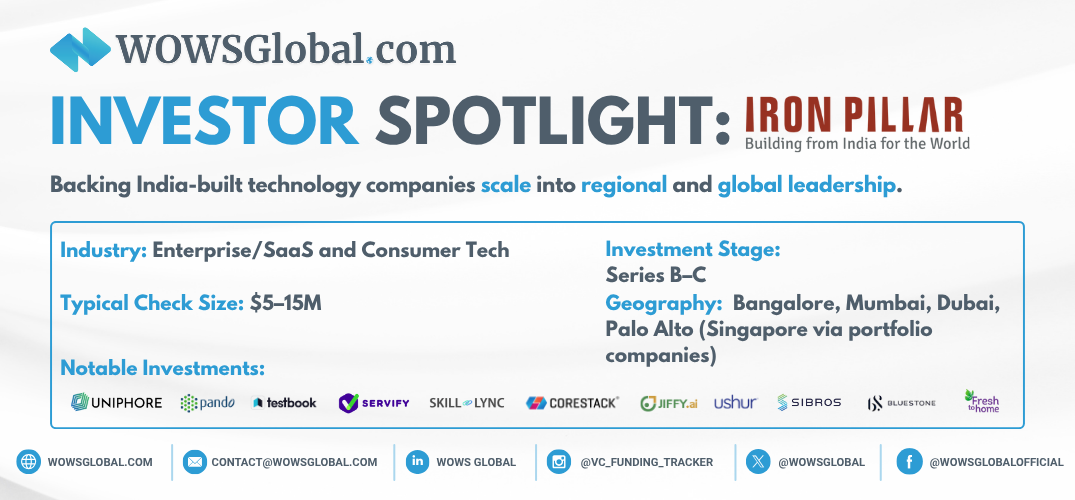
Series B Singapore SEA India 5 Minutes
Iron Pillar: Scaling India-Built Tech Into Southeast Asia
Iron Pillar is a venture-growth firm backing India-built technology as it scales across Southeast Asia. This spotlight covers stage focus, typical checks (US$5–15M), sectors, SEA go-to-market via Singapore, and notable portfolio patterns in SaaS and platforms. For founders and co-investors, it’s a practical guide to where Iron Pillar fits, and how to engage. -

SEA Startup & Venture Capital Proptech Media 4 Minutes
Catcha Group: Company-builders Powering SEA’s Internet Plays
Catcha Group has spent two decades building and backing Southeast Asia’s internet champions, from classifieds and OTT to flexible workspaces. With hands-on operating support and smart consolidation plays, the firm has turned category leaders into headline exits.
